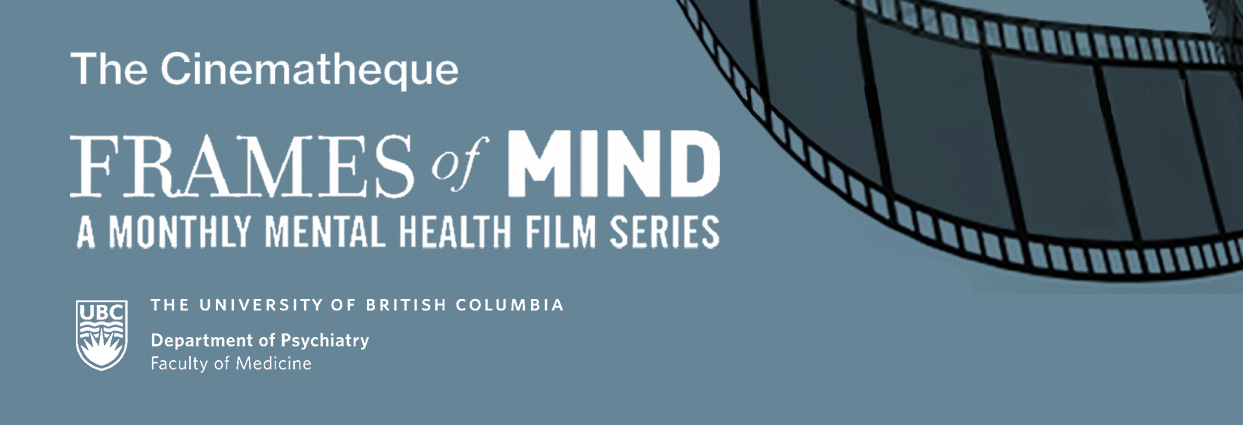
A monthly film series promoting professional and community education on issues pertaining to mental health and illness. Presented by The Cinematheque and the Institute of Mental Health, UBC Department of Psychiatry. Screenings are generally held on the third Wednesday of each month at The Cinematheque, 1131 Howe St, Vancouver, BC.

Inay
Canada 2024 (56 min.)
Director: Theo Loo
Wednesday, January 15, 2025 @ 7:00pm
The Cinematheque (1131 Howe St)
Film Description
In Inay (which means “mama” in Tagalog), Vancouver-based filmmaker Thea Loo compassionately examines the legacy of Canada’s Live-in Caregiver Program and its lasting psychological impact on the two people closest to her: her husband Jeremiah (also the film’s cinematographer), and her close friend Shirley. Despite offering economic opportunities and paths to permanent residency, such employment programs for years separated mothers from their children, creating enduring emotional consequences. Through intimate conversations and candid self-reflection, both Jeremiah and Shirley confront difficult truths about their childhoods. By delicately weaving their personal stories alongside the structural issues of immigration policies, Loo offers a path towards healing and understanding for many Filipino Canadians grappling with the long-term effects of family separation, reunification, and the struggle of being caught between two cultures. Ultimately, Inay is both personal and universal in its approach, expertly illuminating the complexity of mood disorders such as depression and showing how migration and labour are significant social determinants of health.
In English and Tagalog with English subtitles
Arbutus Award (Best BC Film)
VIFF 2024

“A moving film, Inay is full of raw moments that illustrate the trauma that can exist as a consequence of the live-in caregiver program … [The film] puts a human face on the complicated relationship between Canada and the Philippines.” – Gail Johnson, Stir
Post-screening Discussion:
Post-screening discussion with Thea Loo and Jeremiah Reyes.
Thea Loo is a producer and director from Vancouver, BC. Her work spans several successful short films such as No More Parties (2020), which was programmed at Sundance in 2022. Her debut feature documentary Inay premiered in New York City at the Asian American International Film Festival and won the Arbutus Award for Best BC Film at the Vancouver International Film Festival.
Jeremiah Reyes is a multifaceted filmmaker based in Vancouver, BC. Since graduating from BCIT’s Video Production and Editing program, he has worked in post-production as an online and dailies editor. His short films, which he shoots, edits, and scores himself, have played at the Vancouver Asian Film Festival and The Polygon Gallery. Inay is his first feature documentary as director of photography and composer.
Moderated by Dr. Harry Karlinsky, the Series Director of Frames of Mind and a Clinical Professor in the UBC Department of Psychiatry.
Want to be a regular at Frames of Mind screenings on the third Wednesday of every month? Subscribe to the email list and be the first in line for tickets!












